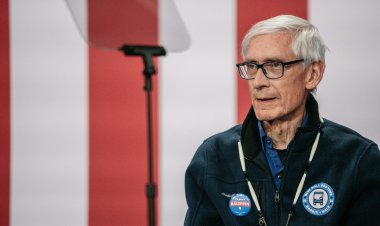What’s next in United States v. Trump: Choosing a trial date
Both sides will file arguments soon on how swiftly, or slowly, the case should move. Then it’s up to Judge Tanya Chutkan.


Depending on whom you ask, Donald Trump’s trial on charges that he sought to subvert the 2020 election could happen in 70 days. Or in three years.
Those are the implicit opening bids from both prosecutors and defense lawyers as the weightiest and most complicated of the former president's three criminal cases so far reaches the scheduling phase.
On Thursday, Trump was arraigned on four felony charges that allege he tried to obstruct the transfer of presidential power and deprive Americans of an orderly and lawful election process — in part by mounting a campaign of lies and disinformation to sow doubt about President Joe Biden’s victory. That effort culminated in a violent mob assault on the Capitol, which prosecutors say Trump sought to leverage to continue pressing his bid to remain in office.
Though there’s already been some jockeying about timing in Trump’s other federal trial — in which he is accused of hoarding classified documents at his Florida estate after leaving office and obstructing investigators trying to recover them — the battle in the election case seems poised to be particularly pitched.
Prosecutors, realistically, know it will take months if not a year or more to prepare a trial that is likely to feature an extraordinary array of testimony from Trump’s inner circle, including potentially his former vice president, Mike Pence. But they began the process Thursday by declining to ask the magistrate judge who presided over Trump’s arraignment to waive time under the so-called “Speedy Trial Act,” a typically routine step that acknowledges it will take longer than 70 days to prepare for trial.
Trump’s defense, on the other hand, says it could take years to review the government’s evidence and amass their own. Attorney John Lauro suggested erroneously in court Thursday that prosecutors have had “3 and a half years” to investigate the case — an estimate that would put the start of the probe about a year before Jan. 6, 2021. But his point was clear: Trump’s team should have a similarly lengthy time to prepare, or else the process won’t be fair.
The wildcard is U.S. District Judge Tanya Chutkan, who is expected to preside over the case. During Thursday’s arraignment, Magistrate Judge Moxila Upadhyaya communicated several messages from Chutkan that hinted she may be inclined to advance the case more speedily than Trump prefers.
Upadhyaya relayed that Chutkan wants the parties to appear before her again this month — offering three proposed dates: Aug. 21, 22 or 28. Prosecutors said they would do any but preferred the earliest. Lauro said he wanted Aug. 28, which Upadhyaya accepted.
Chutkan also asked prosecutors, via Upadhyaya, to formally file a requested trial date and estimate of the length of their case by Aug. 10. Trump’s team, she added, must respond to that filing by Aug. 17.
Upadhyaya had one more message from Chutkan as well: The judge intends to set a trial date at the Aug. 28 conference.












